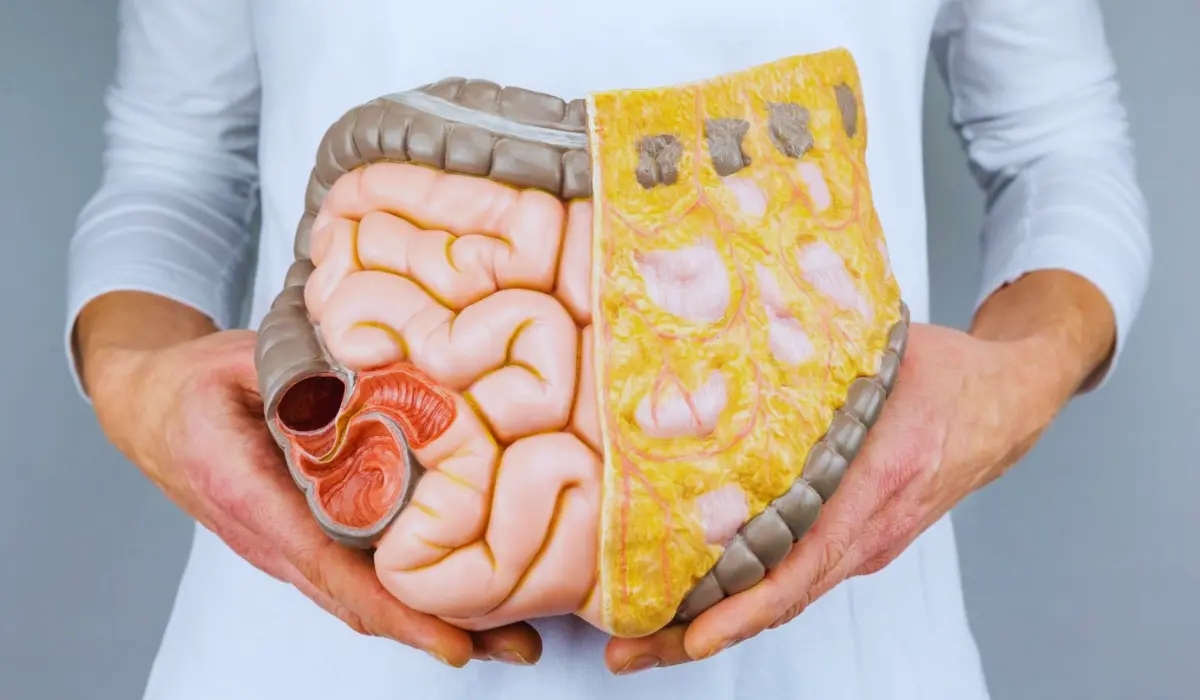Ulcerative colitis is a chronic inflammatory bowel disease that causes inflammation and ulcers in the digestive tract. Fatigue is one of the most common symptoms reported by people with ulcerative colitis.
It can significantly impact the quality of life. Understanding the link between ulcerative colitis and fatigue and how to manage fatigue is important for anyone living with this condition.
What Is Ulcerative Colitis?

Ulcerative colitis is a chronic inflammatory bowel disease that causes long-lasting inflammation and ulcers in the inner lining of the large intestine (colon) and rectum. It can lead to abdominal pain, diarrhea, rectal bleeding, weight loss, and other bowel issues.
The exact cause is unknown but involves an abnormal immune response. It is not the same as Crohn’s disease. Symptoms come and go in flares that alternate with periods of remission. While there is no medical cure, various treatments like medication and surgery can control symptoms and induce remission.
With proper management, people with ulcerative colitis can live active lives, though it may still impact their quality of life. Overall, it is a manageable but lifelong condition that mainly affects the colon.
How Does Ulcerative Colitis Impact Energy Levels?
There are several ways that ulcerative colitis can contribute to feelings of fatigue:
- Inflammation – The inflammation that occurs with ulcerative colitis is taxing on the body and causes fatigue. Chronic inflammation releases immune system chemicals called cytokines that can make you feel tired and sluggish.
- Malabsorption and nutrient deficiencies – Ulcerative colitis can impair your ability to absorb nutrients from food. Deficiencies in iron, vitamin B12, folate, vitamin D, and other nutrients may develop, which reduces your energy levels.
- Diarrhea – Frequent stools and diarrhea from ulcerative colitis can lead to dehydration and loss of electrolytes like potassium and magnesium, which are needed for energy production.
- Poor sleep – Many people with ulcerative colitis have disrupted sleep due to needing to use the bathroom frequently at night. Lack of restorative sleep exacerbates fatigue.
- Medications – Some medications used to treat ulcerative colitis like steroids and immunomodulators can cause side effects such as fatigue.
- Low-grade fever – Some people with active ulcerative colitis have a mildly elevated body temperature, which zaps energy.
- Anemia – Ulcerative colitis may cause iron deficiency anemia due to blood loss from the ulcers. Anemia reduces the oxygen-carrying capacity of your blood, resulting in weariness and weakness.
- Emotional toll – Coping with a chronic illness can take an emotional toll that manifests physically as fatigue. Stress, anxiety, and depression are more common in those with ulcerative colitis.
Fatigue: A Near Universal UC Symptom
Fatigue is one of the most prevalent symptoms in people with ulcerative colitis. Studies show:
- Up to 86% of people with ulcerative colitis report fatigue.
- 40-50% consider fatigue to be one of their most disabling symptoms.
- 30-40% experience fatigue on a daily basis.
- Fatigue scores in ulcerative colitis are much higher than in the general healthy population.
- Those with active disease or a flare experience more severe fatigue than those in remission.
- Even in remission, people with ulcerative colitis report higher levels of fatigue than healthy peers.
This research illustrates how fatigue is a near-universal complaint for those living with ulcerative colitis. It can be a significant source of impaired quality of life.
Ways To Treat And Manage Fatigue
If you have ulcerative colitis and are struggling with fatigue, there are some self-care strategies and medical treatments that may help:
Lifestyle Changes
Get enough sleep – Try to get 7-9 hours of sleep per night and have a consistent bedtime routine. Daytime naps can help too.
Exercise – When you have the energy, get some light-moderate exercise such as walking, swimming, or yoga. This helps boost endorphins and energy over time.
Eat a healthy diet – Eat a well-balanced, ulcerative colitis-friendly diet. Stay hydrated and limit caffeine and sugar.
Practice stress management – Try meditation, deep breathing, journaling, or other relaxation techniques to lower stress.
Listen to your body – Rest when tired. Pace yourself and break tasks into smaller chunks. Don’t overexert.
Avoid triggers – Identify and avoid potential triggers of fatigue like certain foods, stressors, and medications.
Medical Treatment
Treat flares – Getting active ulcerative colitis under control can improve fatigue. Follow your doctor’s treatment plan.
Check for deficiencies – Ask your doctor to test for anemia, vitamin deficiencies, and electrolyte imbalances that could worsen fatigue. Address any found.
Medications – Your doctor may adjust your medications if they suspect it is contributing to fatigue.
Treat contributing factors – Seek treatment for conditions like depression, anxiety, insomnia, and chronic pain that could exacerbate fatigue.
Stimulants – In some cases, your doctor may prescribe a stimulant such as modafinil or armodafinil to alleviate debilitating fatigue.
Conclusion
Fatigue is a prevalent and often debilitating symptom of ulcerative colitis that makes daily activities difficult. The mechanisms include inflammation, impaired nutrient absorption, diarrhea, poor sleep, medication effects, low-grade fever, anemia, and emotional factors.
Lifestyle adjustments, treatment of active disease, correcting deficiencies, managing other conditions, and certain medications can help manage fatigue. Working closely with your healthcare providers to find an effective fatigue management plan can greatly improve your energy levels and quality of life. Prioritizing rest and not pushing yourself too hard is key. There are ways to increase your stamina and cope with fatigue to reduce its impact.

